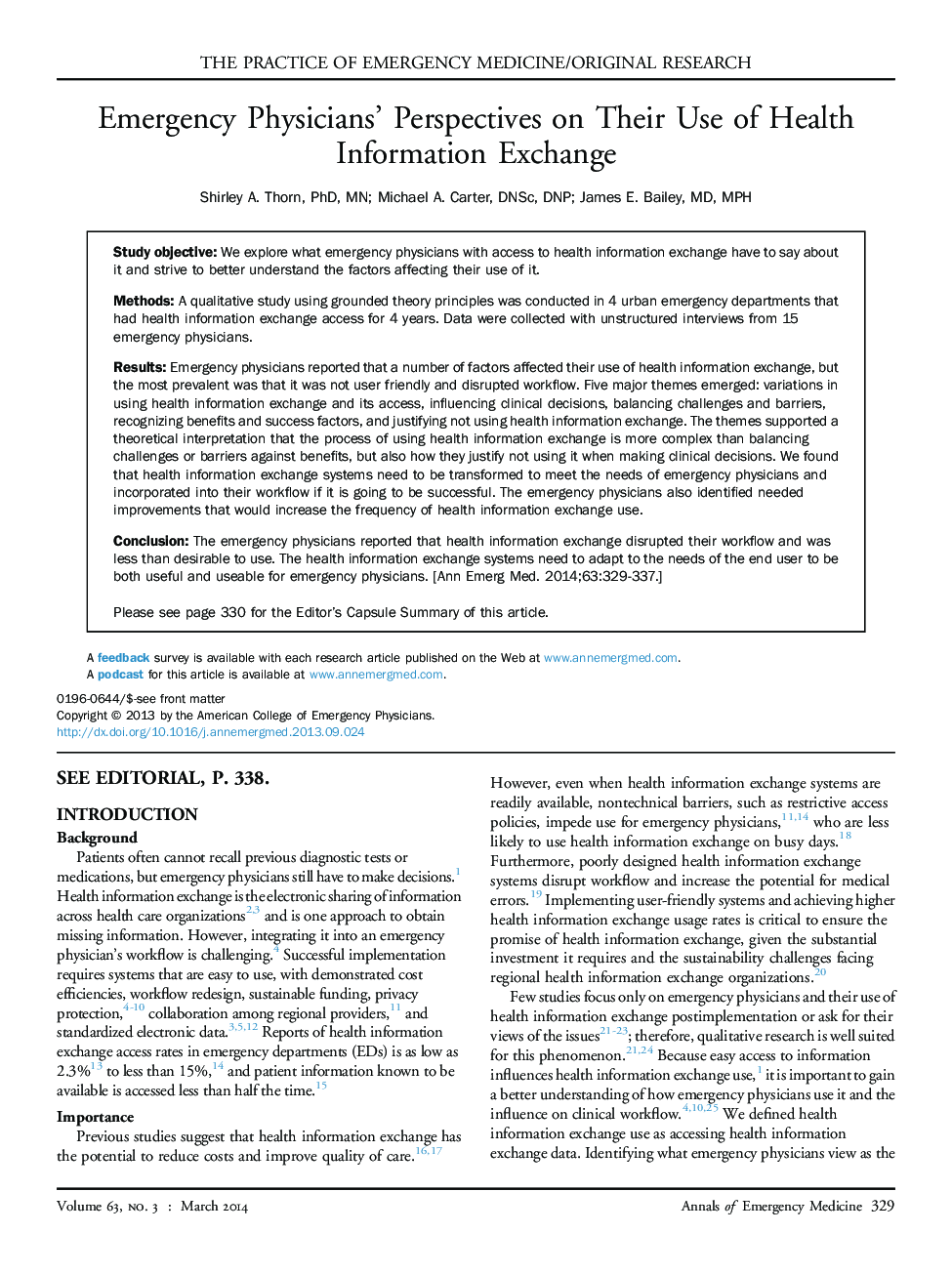| Article ID | Journal | Published Year | Pages | File Type |
|---|---|---|---|---|
| 3229592 | Annals of Emergency Medicine | 2014 | 9 Pages |
Study objectiveWe explore what emergency physicians with access to health information exchange have to say about it and strive to better understand the factors affecting their use of it.MethodsA qualitative study using grounded theory principles was conducted in 4 urban emergency departments that had health information exchange access for 4 years. Data were collected with unstructured interviews from 15 emergency physicians.ResultsEmergency physicians reported that a number of factors affected their use of health information exchange, but the most prevalent was that it was not user friendly and disrupted workflow. Five major themes emerged: variations in using health information exchange and its access, influencing clinical decisions, balancing challenges and barriers, recognizing benefits and success factors, and justifying not using health information exchange. The themes supported a theoretical interpretation that the process of using health information exchange is more complex than balancing challenges or barriers against benefits, but also how they justify not using it when making clinical decisions. We found that health information exchange systems need to be transformed to meet the needs of emergency physicians and incorporated into their workflow if it is going to be successful. The emergency physicians also identified needed improvements that would increase the frequency of health information exchange use.ConclusionThe emergency physicians reported that health information exchange disrupted their workflow and was less than desirable to use. The health information exchange systems need to adapt to the needs of the end user to be both useful and useable for emergency physicians.
